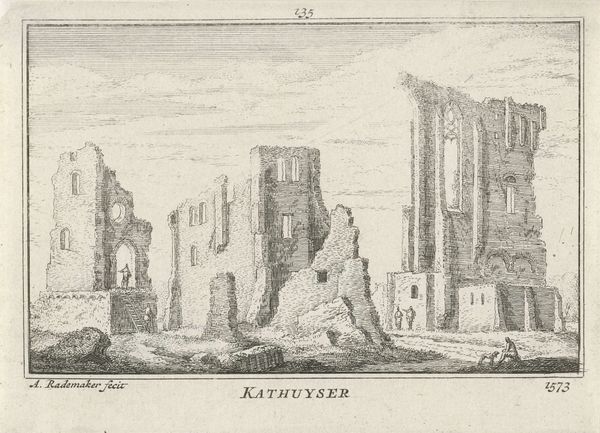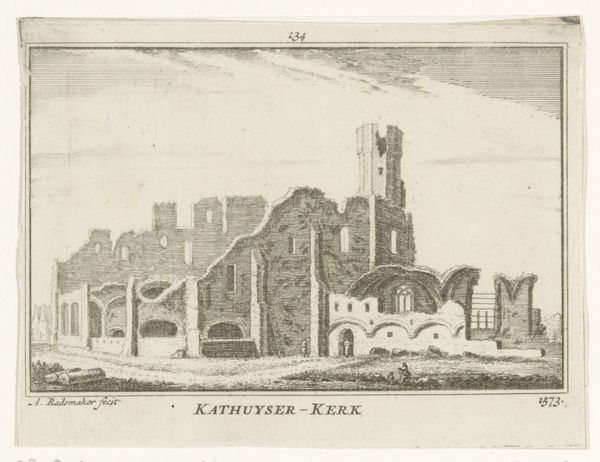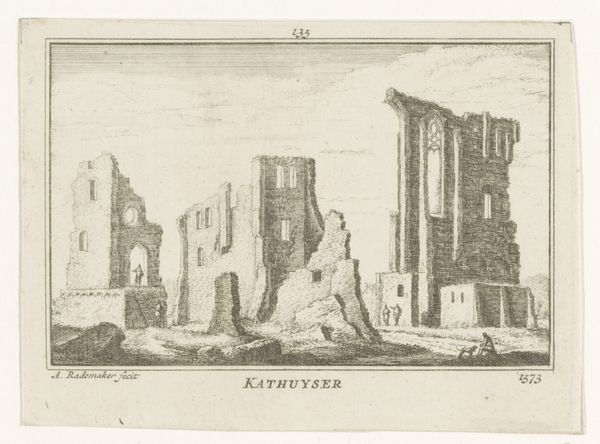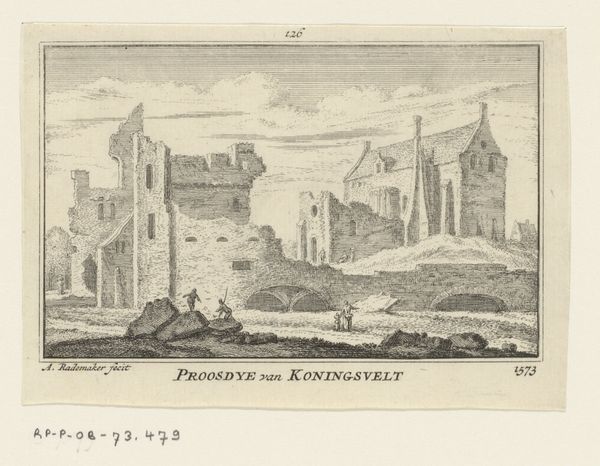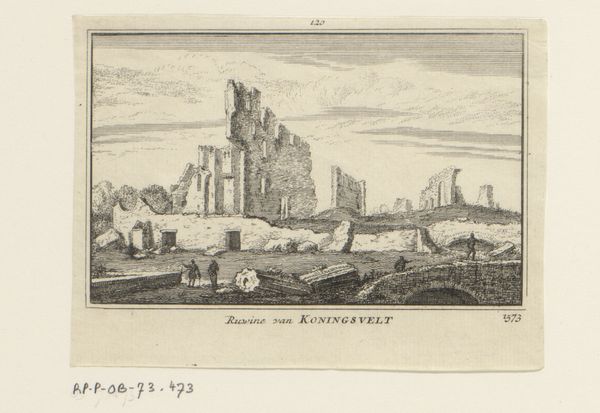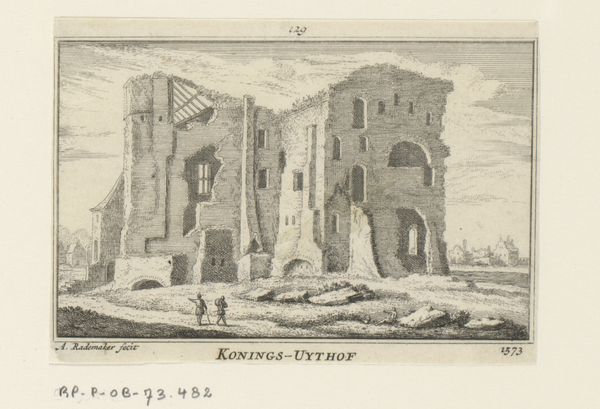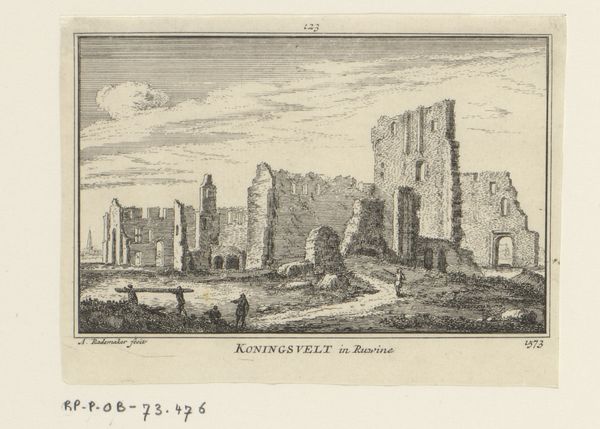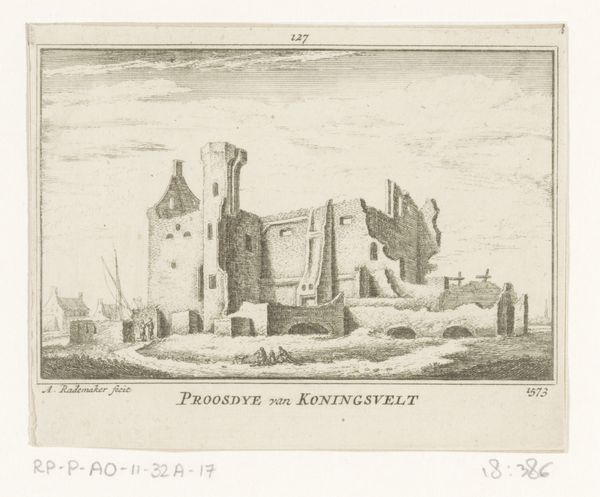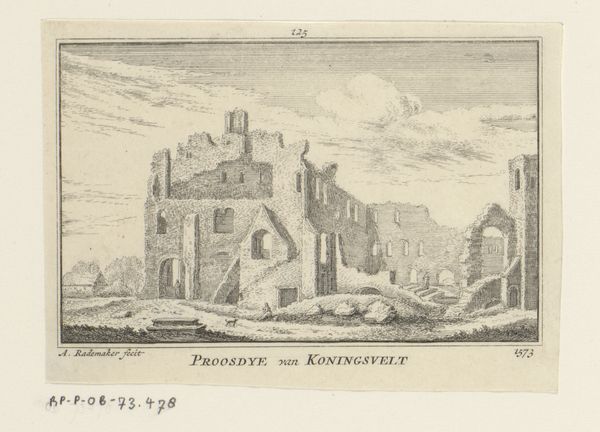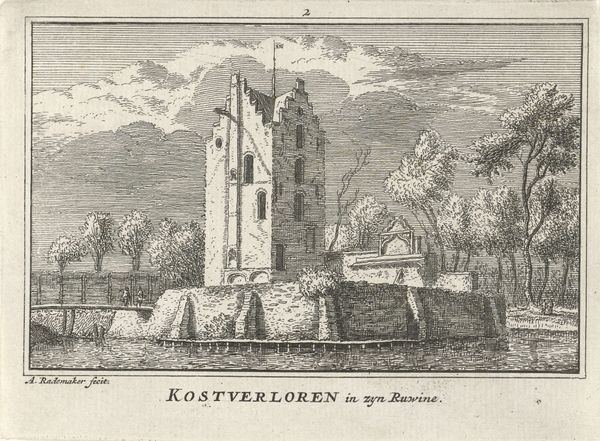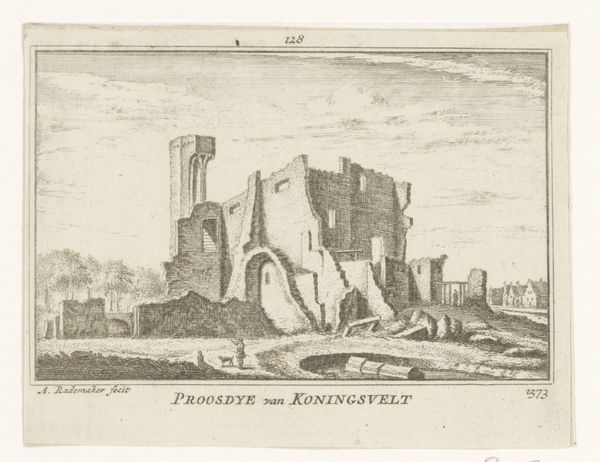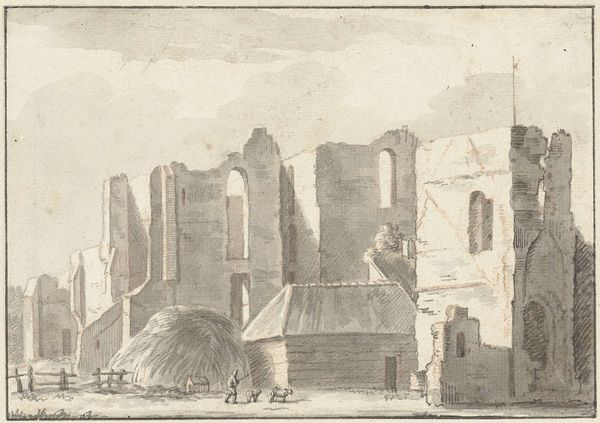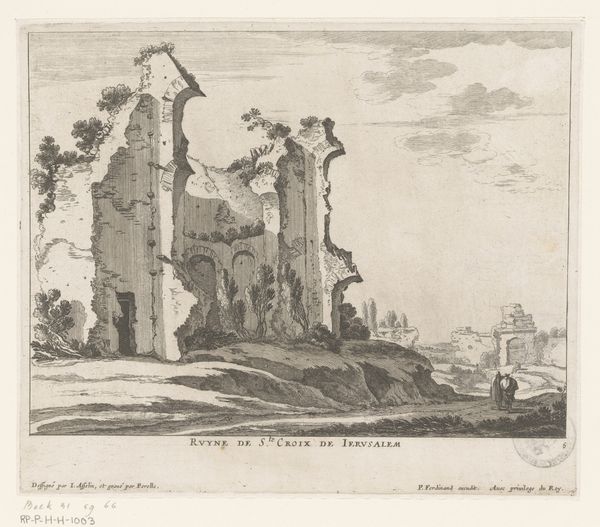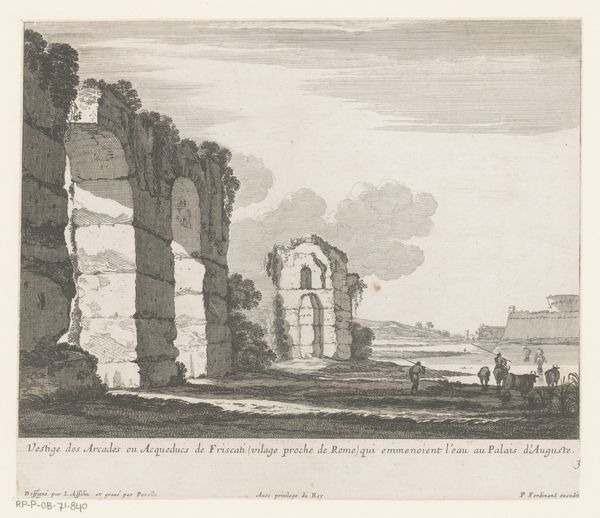
Gezicht op de ruïne van de kartuizerkerk bij Delft, 1573 1725 - 1803
0:00
0:00
abrahamrademaker
Rijksmuseum
Dimensions: height 82 mm, width 108 mm
Copyright: Rijks Museum: Open Domain
This small print, made by Abraham Rademaker in 1573, captures the ruins of the Carthusian church near Delft. Rademaker, active in the late 17th and early 18th centuries, employed etching, a printmaking process reliant on craft skill and chemical precision. The image's stark contrasts result from the etched lines incising the metal plate, capturing light and shadow. Lines swarm and swell to articulate the crumbling brickwork, a testament to time and destruction. Think about the labor involved, the skilled hand tracing the ruin, translating architecture into a network of deliberate marks. Etchings like these speak to a growing market for topographical views, fueled by increasing urbanization and a rising merchant class. These weren't just artworks; they were documents, souvenirs, and commodities. The print is more than just a picture, it reflects the era's shifting social and economic landscape. This work invites us to consider the complex interplay between art, craft, and commerce.
Comments
No comments
Be the first to comment and join the conversation on the ultimate creative platform.
